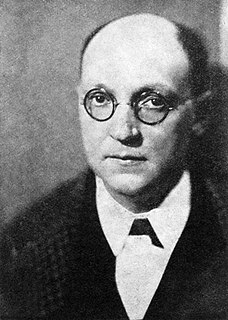A Quote by Thomas Aquinas
Any error about creation also leads to an error about God.
Related Quotes
There exists a black kingdom which the eyes of man avoid because its landscape fails signally to flatter them. This darkness, which he imagines he can dispense with in describing the light, is error with its unknown characteristics. Error is certainty's constant companion. Error is the corollary of evidence. And anything said about truth may equally well be said about error: the delusion will be no greater.
Error is a supposition that pleasure and pain, that intelligence, substance, life, are existent in matter. Error is neither Mind nor one of Mind's faculties. Error is the contradiction of Truth. Error is a belief without understanding. Error is unreal because untrue. It is that which stemma to be and is not. If error were true, its truth would be error, and we should have a self-evident absurdity -namely, erroneous truth. Thus we should continue to lose the standard of Truth.
There is a lot of difference between tempting and leading into error. God tempts but does not lead into error. To tempt is to provide opportunities for us to do certain things if we do not love God, but putting us under no necessity to do so. To lead into error is to compel a man necessarily to conclude and follow a falsehood.
When things get bad enough, then something happens to correct the course. And it's for that reason that I speak about evolution as an error-making and an error-correcting process. And if we can be ever so much better - ever so much slightly better - at error correcting than at error making, then we'll make it.
Why is the public so interested in movies about the wealthy? My answer is that Shakespeare wrote about kings. That's where the action is. And it's the classic, cathartic thing. You get to indulge in a lifestyle you're not part of, a tragic error leads to a downfall, and you get to say, 'Thank God I'm not him.'
The world always makes the assumption that the exposure of an error is identical with the discovery of truth - that error and truth are simply opposite. They are nothing of the sort. What the world turns to, when it has been cured of one error, is usually simply another error, and maybe one worse than the first one.




































